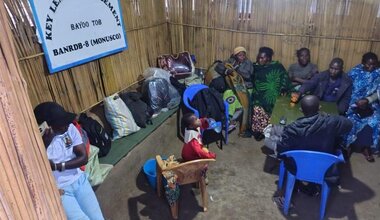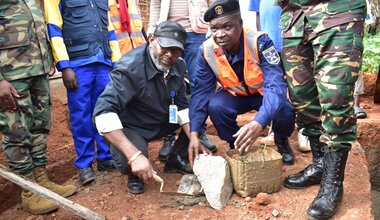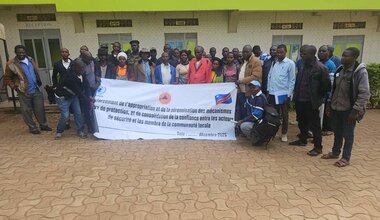Women and Peace in DRC: A daily commitment
The International Day of Peace, celebrated on September 21st, highlighted the essential role of women in peace consolidation in the Democratic Republic of Congo. Their daily commitment, whether they come from local communities or wear uniforms, illustrates the concrete implementation of the Women, Peace and Security (WPS) Agenda.
Inclusion: A necessity for lasting Peace
Lasting peace is only possible if it is inclusive. In villages and neighborhoods, Congolese women invest themselves in resolving land conflicts, mediating between communities, and raising awareness among young people to lay down their arms.
In Bunia, in June 2025, the "Ituri Women's Collective" brought together thirty-six community leaders, including twenty women and five traditional chiefs. This dialogue enabled Lendu and Hema women to rebuild trust after years of mistrust. The reopening of the Mandro market, closed since the beginning of the conflict, as well as the creation of a joint monitoring committee, demonstrate the concrete impact of this initiative.
"Too often, discussions about peace take place without the voices of mothers, survivors, or farmers. The peace we want cannot be decided without our participation," emphasizes Mrs. Benge Mukengere, mediator from Beni.
Women in uniform: Trust builders
Whether police officers or military personnel, women in uniform play an essential role in strengthening the link between the population and institutions. Their presence in the field fosters dialogue, improves information gathering, and contributes to community resilience, particularly among women and young people.
"Lasting peace requires building strong institutions capable of responding to local concerns and respecting human rights and gender," explains IPO Ouoba Nignan Anes, Gender Advisor, involved in security sector reform activities and the Congolese National Police.
Solidarity for a common future
The theme of Peace Day 2025 reminded us that inclusion is at the heart of any peace strategy. Women, through their leadership and daily commitment, actively participate in mediation, civilian protection, and reconciliation.
Alongside communities, MONUSCO supports these efforts by strengthening local capacities and advocating for the full participation of women.
"The Women, Peace and Security Agenda is not just a political framework, it is a philosophy that recognizes the transformative power of women," states Mrs. Mireille Laurier Affa'a Mindzie, Chief of MONUSCO's Gender Section.
September 21st was thus an opportunity to pay tribute to Congolese women who, through their actions, contribute to transforming the ideal of peace into a reality experienced daily.

 UN
UN United Nations Peacekeeping
United Nations Peacekeeping







